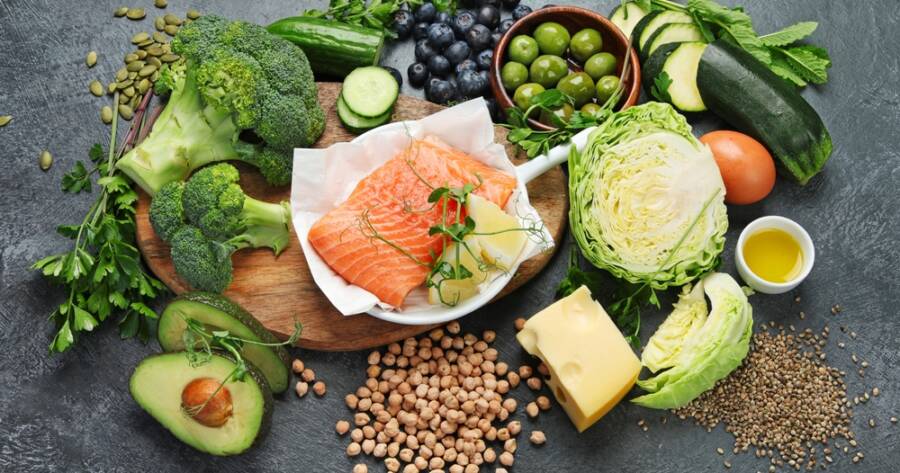The Mediterranean diet isn’t just a trend—it’s a lifestyle rooted in decades of health research and traditional eating habits from countries like Greece, Italy, and Spain. Known for promoting heart health, longevity, and balanced nutrition, this diet focuses on whole foods like fruits, vegetables, whole grains, fish, olive oil, and legumes. It’s not about restriction but about choosing better-quality ingredients. If you’re looking to eat healthier without giving up flavor, this 7-day Mediterranean meal plan is a great place to start.
Why Choose the Mediterranean Diet?
The Mediterranean diet has been consistently ranked as one of the healthiest in the world. Studies show it can lower the risk of heart disease, stroke, type 2 diabetes, and even some types of cancer. What sets it apart is its focus on healthy fats, fiber-rich plant foods, and lean proteins—particularly seafood.
Unlike many restrictive diets, the Mediterranean approach is flexible and sustainable. It encourages cooking at home, enjoying meals with others, and eating mindfully. Red wine in moderation and regular physical activity are also part of the traditional Mediterranean lifestyle.
This eating pattern is naturally low in processed foods and refined sugar, which helps regulate blood pressure and cholesterol while supporting healthy weight management.
A Week of Heart-Healthy Mediterranean Meals
To help you get started, here’s a simple 7-day meal plan that follows the Mediterranean style of eating. Each day includes breakfast, lunch, and dinner ideas using ingredients that are easy to find and prepare.
Day 1
- Breakfast: Greek yogurt with honey, walnuts, and fresh strawberries
- Lunch: Lentil soup with a side of whole grain bread and cucumber-tomato salad
- Dinner: Grilled salmon with lemon, steamed green beans, and quinoa
Day 2
- Breakfast: Oatmeal topped with almonds, blueberries, and a drizzle of olive oil
- Lunch: Hummus wrap with spinach, roasted peppers, and feta cheese
- Dinner: Baked chicken with rosemary, roasted sweet potatoes, and sautéed zucchini
Day 3
- Breakfast: Smoothie with spinach, banana, unsweetened almond milk, and chia seeds
- Lunch: Quinoa salad with chickpeas, cherry tomatoes, parsley, and lemon dressing
- Dinner: Shrimp sautéed with garlic and olive oil, served over whole wheat pasta and steamed broccoli
Day 4
- Breakfast: Whole grain toast with smashed avocado and a poached egg
- Lunch: Mediterranean tuna salad with olives, capers, and arugula
- Dinner: Stuffed bell peppers with brown rice, lentils, onions, and herbs
Day 5
- Breakfast: Cottage cheese with sliced peaches and flaxseeds
- Lunch: Whole wheat pita with falafel, tahini, lettuce, and cucumber
- Dinner: Grilled trout with lemon-herb marinade, couscous, and a side of sautéed spinach
Day 6
- Breakfast: Scrambled eggs with diced tomatoes, onions, and parsley
- Lunch: Roasted vegetable and barley bowl with a drizzle of olive oil
- Dinner: Baked eggplant with marinara, topped with fresh basil and shaved parmesan
Day 7
- Breakfast: Greek yogurt smoothie with banana and oats
- Lunch: Chickpea and avocado salad with lemon and olive oil
- Dinner: Grilled chicken skewers with tzatziki sauce and a side of tabbouleh
You can switch meals around, repeat favorites, or mix and match based on your preferences. The key is to focus on fresh ingredients and balanced portions.
Snacks and Extras to Keep You Satisfied
While the Mediterranean diet doesn’t emphasize snacking, having small, healthy options available can help curb hunger between meals. Popular choices include:
- A handful of unsalted nuts
- Fresh fruit
- Sliced vegetables with hummus
- Whole grain crackers with cheese
- A small serving of olives
Stay hydrated by drinking plenty of water throughout the day. Herbal teas and moderate amounts of coffee are also acceptable. If you drink alcohol, a small glass of red wine with dinner is traditionally part of the Mediterranean lifestyle, though it’s always optional.
Cooking Tips to Keep It Simple
You don’t need to be a gourmet chef to follow the Mediterranean diet. The cooking techniques are straightforward—think roasting, grilling, steaming, and sautéing in olive oil. Spices like oregano, basil, cumin, and paprika add flavor without needing salt or heavy sauces.
Shop the perimeter of your grocery store to focus on whole, fresh ingredients. Try to cook at home more often, as restaurant meals often include more salt and processed fats. Meal prepping on weekends can help you stay consistent throughout the week.
A Lifestyle That Nourishes Body and Mind
The Mediterranean diet is more than just a way to eat—it’s a way to live well. With its focus on whole foods, heart-healthy fats, and enjoyable meals, it’s one of the easiest and most delicious paths to better health.
This weeklong plan is just the beginning. As you get more comfortable, you can explore new recipes and adapt the plan to suit your tastes. Over time, these habits can help you feel more energetic, reduce health risks, and enjoy every bite along the way.

